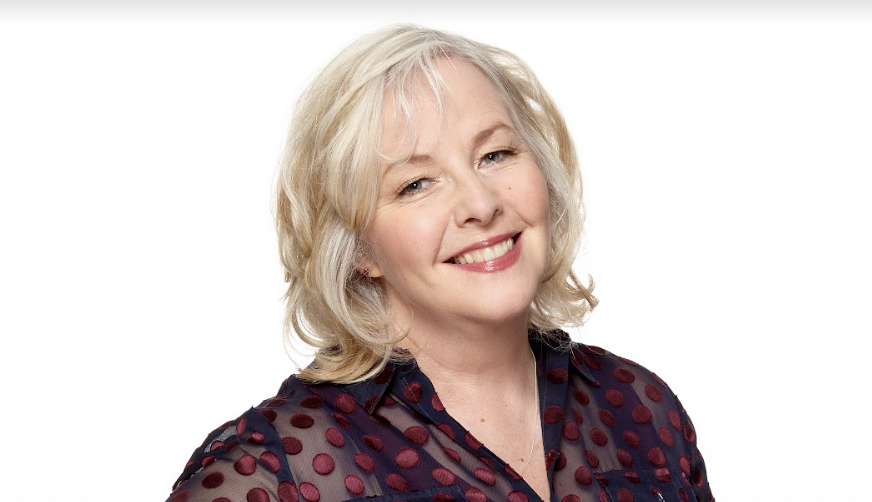Editor’s Note: Strong relationships are at the core of a happy life, but sometimes, dealing with the people in our lives is tricky. That’s why Thrive Global partnered with The Gottman Institute on this advice column, Asking for a Friend. Every week, Gottman’s relationship experts will answer your most pressing questions about navigating relationships — with romantic partners, family members, co-workers, friends, and more. Have a question? Send it to [email protected]!
Q: I’ve been close with a male friend of mine for years, when we met in college and were both in relationships at the time. We’ve kept in touch over the years, but always as platonic friends — discussing dates with other people, and our other relationships. I was ignoring the feeling for a while since I didn’t want to ruin our friendship, but I’ll admit it: I have a crush. Do I pursue it and confess my feelings in the hopes that he feels the same? Or is this too risky because it would ruin our friendship if he doesn’t?
A: What’s the difference between a romantic relationship and a deep friendship?
The difference is a kiss.
Jay was my best friend. Most nights we grabbed dinner at a local student-friendly food joint — the Thai restaurant with the best lemongrass soup outside Bangkok, or the 24-hour hippie vegetarian place that was perfect for heated post-theatre pow-wows where we’d dissect the latest avant-garde play. I could never finish my meal and it was simply accepted that I’d slide the rest of my food onto his plate.
We talked, we laughed, we took my mutt to the beach where Jay threw the ball much further than I could, to the splashing delight of my otter-like Lab mix. Jay teased me, saying I was the perfect woman, nicknaming me “dream babe.” We were incredibly close. But we were just friends. We shared our crushes and our heartbreaks with each other.
One February, both single again, we dressed in head-to-toe black, took each other out for Valentine’s Day dinner, and celebrated the “Death of Love.” Ironically we were unable to recognize the romantic poetry within the intentionally cynical gesture.
Then I met the man I would marry. A year later, when we set the date, I asked Jay to be my maid of honor.
Three years later, that marriage ended. The day my partner abruptly left me a sobbing wreck, alone in San Francisco in the middle of my Ph.D. program, the phone rang. It was Jay calling from a phone booth in Vietnam where he was backpacking with his current girlfriend. I was astounded. I knew the call cost more than a night in a hostel. He said, “I had a feeling that something was terribly wrong. Are you OK?” As we spoke he watched an elephant walk by.
Two years later, Jay flew down to spend Christmas with me. I collected him at the airport, we had a beautiful dinner at a restaurant thrice the price of what we could afford in the old days, and he introduced me to smoky scotch. We fell into the easy, loving, connected familiarity that we’d always had. Then, back at my cabin in the forest, as I prepared the couch as his bed, he pulled me close, looked at me seriously and said, “I’m going to kiss you now.” I was speechless.
Then he kissed me. And it was beyond glorious. And my dog slept alone on the couch that night.
So when you ask whether or not to share your romantic feelings with your friend, I am answering both as a couples’ therapist and as someone who kissed their friend. And is glad she did.
A romantic relationship is simply friendship plus nudity. They are not so different after all. Yet we classify people as friend or lover as though those two categories have intrinsic meaning. We act as though love and attraction are binary instead of blurred.
What about friend and lover? Can’t the categories morph and evolve as we do? After all, according to Gottman research, relationship friendship is one of the three keys to happy long-term love. Along with the ability to communicate and manage conflict, and to share goals and dreams, it’s those very friendship qualities you developed with your college buddy (and I did with Jay) that predict success in romance.
The ability to talk deeply about your inner worlds, to pay attention to each other with curiosity and presence, and to share affection and appreciation — that plus nudity equals a great love affair.
Yet here you are, like so many of us, fearful about crossing that scary line between friend and lover.
I propose that we have some pretty weird concepts about what differentiates platonic love from sensual love. Our confusion around friendship, sex, and romance is in our head, not our bed. We are confused about attraction, about what we want in a relationship, and the difference between what we think we want (tall, dark, handsome, and with keys to a Porsche) versus what we need (light-hearted personality, honest and true, passionate in and out of bed, with keys to a solid marital house).
We have an idea of who fits into what box, and what we should — or shouldn’t — do about it. And often those boxes were decided years ago. They may no longer reflect the person we — and our “just friend” — have become.
As we mature, so does the way we see relationships. One of my clients told me, “I no longer look for lifelong happiness with the long-haired, tattooed guitar players that intrigued me in my 20s.” She then glanced lovingly at her spouse, who had been her best friend for decades. “I spent a lot of years crying on his shoulder about all the other guys. Then one day I woke up and fell in love with the shoulder I was crying on.”
When you met your college friend, you were both in relationships, so you didn’t let your thoughts go beyond the friend zone. Fair enough. You developed a way of being careful with each other — no flirting, no sexual possibilities — and that became “how we are together.” The line was drawn.
But you can erase it. The old line has no inherent reality here and now. Providing you’re of sound mind (there are some solid reasons to not tell — see below), I say go for it. Test the imaginary line, and see if it dissolves with a kiss.
Yes, it’s risky to take that leap. And brave. Deep, open conversations take courage. Attraction and vulnerability are tricky things. Some friendships end in awkwardness when the line is examined. Your friend may be so stuck in his concept of which box you belong in that he cannot see you as a lover. If he freaks out, suggest he feel flattered by your openness and the positive, beautiful feelings you have for him.
Let him know that you have no expectations, but you do have a request. You’d like to make a dinner date for a week from now to give him time to get over the shock of his buddy proposing to be bedmates. Invite him to leave the door open to a new form of the love between you. Because sometimes when you name the elephant, great things happen. When you erase the imaginary line, he may just fall in love with the shoulder he’s been crying on.
And with that, some guidelines for how to move forward…
I Have Romantic Feelings for a Friend — Don’t Tell or Tell?
Don’t Tell
- Act with Integrity: If one of you is in a committed relationship, Don’t Tell.
- Beware of Rebound: If one of you is in the midst of a messy break-up, and might be searching for comfort and familiarity as a way to fill the hole in your heart, Don’t Tell.
- Check Your Motivation: If you are seeking ego gratification, a quick physical fling, or to test your theory he was always into you — Don’t Tell.
- Wait and See: If you’ve been watching too many Julia Roberts movies and have had an epiphany with his name on it – Don’t Tell. Wait a month to make sure this is real, not a whim.
Tell
- Share Your Truth: If you are both single, and none of the “Don’t Tell” traps apply — Tell. Let him know you want to jump from the friend box to the lover box.
- Accept the Outcome: Tell. But be ready for a yes, no, or maybe. You cannot control the response, only what you offer.
- Kiss and Tell: Bypass the explanation altogether and just kiss him, deeply and passionately. Though not for the faint of heart, this direct physical approach can dissolve the line more quickly than words ever can.
- High-Five Yourself: If you tell him, be proud. It’s an act of honesty, bravery, and integrity. No matter the outcome, you’ll never have to live with the regret of “What If.”
Follow us on Facebook and sign up for our weekly newsletter for all the latest news on how you can keep Thriving.
More from Asking for a Friend here.


